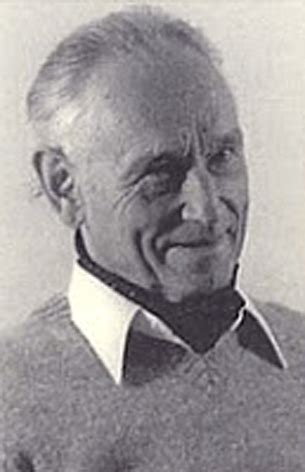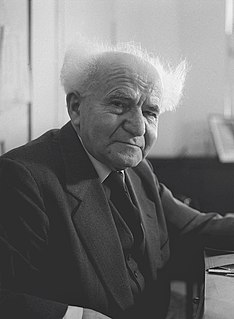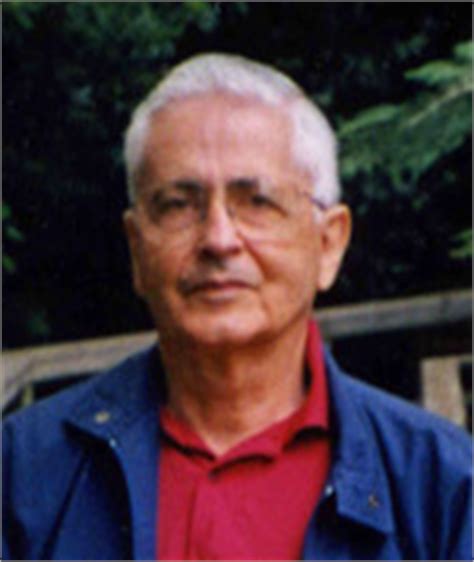A Quote by Henry Ward Beecher
God does not refuse to make himself known to man. He only will not do it by the symbolism of matter. He comes to us at once by the most natural course. We are in a transient state; our bodies are accidental, and God comes to us by that which is higher and truer--the intuitions of the soul.
Related Quotes
Man depends on God for all things: God depends on man for one. Without man's love God does not exist as God, only as creator, and love is the one thing no one, not even God himself, can command. It is a free gift or it is nothing. And it is most itself, most free, when it is offered in spite of suffering, of injustice, and of death . . . The justification of the injustice of the universe is not our blind acceptance of God's inexplicable will, nor our trust in God's love, his dark and incomprehensible love, for us, but our human love, notwithstanding anything, for him.
It is a great good to be given over to the will of God. Then the Lord alone is in the soul, and no other thought, and she prays to God with a pure mind. When the soul is entirely given over to the will of God, then the Lord Himself begins to guide her, and the soul learns directly from God ... A proud man does not with to live according to the will of God. He likes to direct himself, and does not understand that man does not have enough understanding to direct himself without God.
The law of giving and receiving is fundamental, and relates just as much to God as it does to us. As we go through the door of giving ourselves to God in worship we find that God comes through that same door and gives Himself to us. God's insistence that we worship Him is not really a demand at all but an offer-an offer to share Himself with us. When God asks us to worship Him, He is asking us to fulfill the deepest longing in Himself, which is His passionate desire to give Himself to us. It is what Martin Luther called "the joyful exchange."
God will never disappoint us… If deep in our hearts we suspect that God does not love us and cannot manage our affairs as well as we can, we certainly will not submit to His discipline. …To the unbeliever the fact of suffering only convinces him that God is not to be trusted, does not love us. To the believer, the opposite is true.
Do we not see God at work in our circumstances? Dark times are allowed and come to us through the sovreignty of God. Are we prepared to let God do what He wants with us? Are we prepared to be separated from the outward, evident blessings of God? Until Jesus Christ is truly our Lord, we each have goals of our own which we serve. Our faith is real, but it is not yet permanent. And God is never in a hurry. If we are willing to wait, we will see God pointing out that we have been interested only in his blessings, instead of God Himself.
The soul of the just man is but a paradise, in which, God tells us, He takes His delight. What do you imagine, must that dwelling be in which a King so mighty, so wise, and so pure, containing in Himself all good, can delight to rest? Nothing can be compared to the great beauty and capabilities of a soul; however keen our intellects may be, they are as unable to comprehend them as to comprehend God, for, as He told us, He created us in his own image and likeness.
There are two gods. The god our teachers teach us about, and the God who teaches us. The god about whom people usually talk, and the God who talks to us. The god we learn to fear, and the God who speaks to us of mercy. The god who is somewhere up on high, and the God who is here in our daily lives. The god who demands punishment, and the God who forgives us our trespasses. The god who threatens us with the torments of Hell, and the God who shows us the true path.
There are two gods. A god who casts us off because of our sins, and a God who calls to us with His love.
God made us: invented us as a man invents an engine. A car is made to run on petrol, and it would not run properly on anything else. Now God designed the human machine to run on Himself. He Himself is the fuel our spirits were designed to burn, or the food our spirits were designed to feed on. There is no other. That is why it is just no good asking God to make us happy in our own way without bothering about religion. God cannot give us a happiness and peace apart from Himself, because it is not there.
The gospel is saying that, what man cannot do in order to be accepted with God, this God Himself has done for us in the person of Jesus Christ. To be acceptable to God we must present to God a life of perfect and unceasing obedience to his will. The gospel declares that Jesus has done this for us. For God to be righteous he must deal with our sin. This also he has done for us in Jesus. The holy law of God was lived out perfectly for us by Christ, and its penalty was paid perfectly for us by Christ. The living and dying of Christ for us, and this alone is the basis of our acceptance with God
To do God's will as fast as it is made known to us, to inquire hourly -- I had almost said each moment -- what He requires of us, and to leave ourselves, our friends, and every interest at His control, with a cheerful trust that the path which He marks out leads to our perfection and to Himself, -- this is at once our duty and happiness; and why will we not walk in the plain, simple way?.
Prayer brings to us blessings which we need, and which only God can give, and which prayer can alone convey to us ... This service of prayer is not a mere rite, a ceremony through which we go, a sort of performance. Prayer is going to God for something needed and desired. Prayer is simply asking God to do for us what he has promised us he will do if we ask him ... Asking is man's part. Giving is God's part. The praying belongs to us. The answer belongs to God.





































